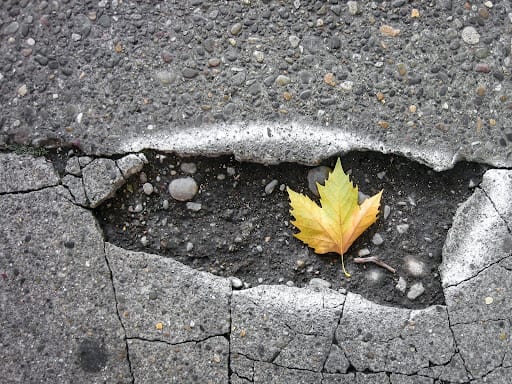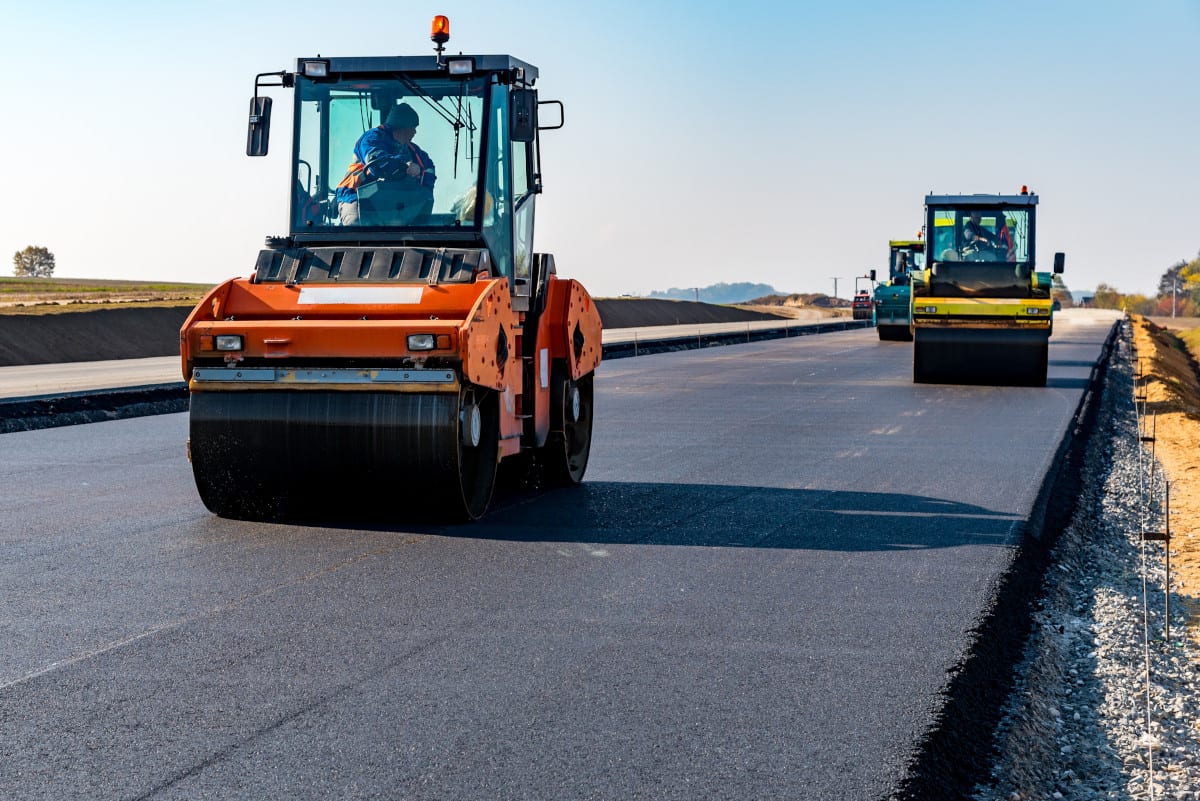Tough, dark, and smooth, asphalt has been a paving material of choice in Alberta for many decades. This combination of rock and petroleum is widely used in everything from public roads to private driveways, due to its durability. However, even the best asphalt surfaces can still be damaged by prolonged exposure to the elements—and with extreme weather events becoming increasingly common, now’s as good a time as any to read up on how to extend the life of any paved asphalt surfaces you own.
At Ram Paving, we have years of experience pouring, fixing, and maintaining asphalt for our clients. In fact, asphalt repair is one of our most popular services. Let us share our knowledge of how to care for this type of paving with you so that you can make your asphalt surfaces last longer.
How Alberta’s Climate Damages Paved Roads & Driveways
The first thing you need to understand about caring for asphalt is that doing it in Alberta is different. That’s because Alberta’s often-harsh climate poses unique hazards for paved surfaces.
In particular, you’ll want to look out for the freeze-thaw cycles caused by the province’s infamous Chinooks. Typically, asphalt resists damage from freezing quite effectively, but can warp during a thaw when the warmer temperatures cause it to expand.
Should You Pave with Asphalt in Alberta?
Despite the damage that freeze-thaw cycles can do, asphalt is still a sensible paving material to use in Alberta. That’s because it provides better contact with tires than many other materials, making it a safer driving surface during Alberta’s cold (and slippery) winters.
Asphalt also shifts and moves instead of cracking when heavy loads are travelling across it, making it a favoured material in parts of the province that routinely experience heavy traffic or construction. So the answer isn’t to avoid asphalt—it’s to take care of it properly.
Let’s talk about how to do that next.
How to Prevent & Minimize Damage to Your Asphalt Surfaces
Here are a few tips on how to protect your asphalt surfaces from two serious kinds of damage: cracks and potholes:
Protecting Asphalt Surfaces from Cracks
Cracks form in asphalt surfaces over time, normally due to years of expanding and contracting in a range of different temperatures (as we mentioned earlier). However, there are a few steps you can take to prevent cracks and slow them down once they start:
- If you have an asphalt driveway, make sure not to park your vehicle in the same place over and over again. This places more strain on specific parts of the driveway and leads to cracking over time.
- Clean your asphalt on a regular basis to prevent contaminants from collecting on it. Some kinds of chemical residue can corrode the surface of your asphalt, and even plain dirt or mud can set the stage for mold or mildew—which can grow inside hairline cracks and cause them to widen, leading to much more significant problems.
- Apply sealcoating to your asphalt surface every two or three years (ideally just before summer starts). Sealcoating helps protect your asphalt from the elements by reflecting UV rays, thereby reducing the amount of warping that will take place as it expands in the heat. We recommend contacting a licensed professional to apply seal coating to your asphalt so that you can ensure it is done effectively.

Via Unsplash.
Protecting Asphalt Surfaces from Potholes
Potholes are normally caused when water enters the ground under your asphalt and freezes during cold temperatures. As soon as the weather warms up and the ice thaws, the water drains away and leaves a space behind that the asphalt above collapses into. Here are some tips to help prevent potholes from destroying your asphalt:
- Make sure water always drains properly off your property. Any high-quality asphalt driveway or other surface should be built with a drainage system to keep water from pooling in places that can eventually cause it to erode.
- If you notice a pothole forming, you can attempt to fix it temporarily by placing a cold mix asphalt patch inside and compacting it (usually by driving over it with a vehicle) until it’s smooth and even with the surrounding pavement. However, this is only a temporary solution and should not replace the services of a qualified paving contractor.
- Have your driveway or other asphalt surface routinely inspected and serviced by a licensed professional on an annual basis. Doing so is the single best way to identify the warning signs of a pothole before one shows up unexpectedly in your asphalt.
All Asphalt Needs Service Eventually
Taking good care of your asphalt will extend its lifespan, but it’s critical to note that no asphalt surface will last forever, no matter how diligent you are about maintaining it. Most asphalt driveways will last for up to 25 years if you’re kind to them and follow the steps above (including regular professional maintenance), but wear and tear is inevitable at a certain point.
Still, there’s no use inviting cracks or potholes to show up prematurely in your asphalt. Learn more about keeping your asphalt in excellent shape by contacting us directly with your questions and speaking with one of our professional paving contractors.


